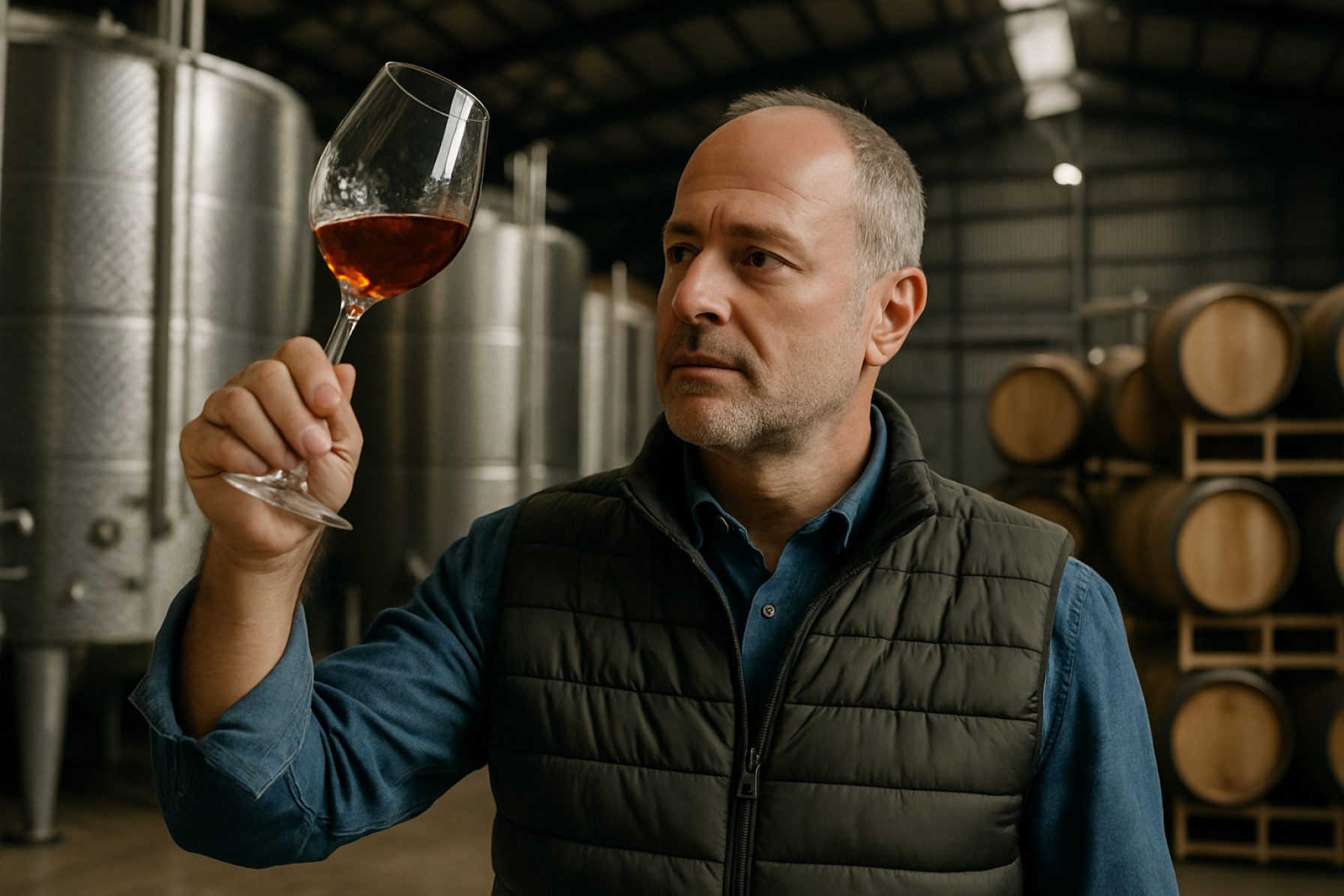Inside Tbilvino’s Global Wine Ambitions: Ancient Traditions, UK Takeover & The New Frontier of Georgian Wine
Discover how Tbilvino’s fusion of 8,000-year-old winemaking and global market savvy is transforming Georgian wine into a worldwide sensation.
- 33.5% of Georgian wine in the UK supplied by Tbilvino (2024)
- 8,000 years of winemaking heritage in Georgia
- 60% of Georgian wine demand comes from Russia, but Tbilvino exports less than 5% there
Georgia, perched at the crossroads of Europe and Asia, is unlocking its ancient wine secrets for the modern world. At the heart of this revolution stands Tbilvino, Georgia’s flagship winery, determined to put the country’s bottles on every major wine shelf across the globe.
The Margvelashvili family has helmed Tbilvino for three decades, with George Margvelashvili steering the company into new territory over the last 25 years. Operating cellars in both bustling Tbilisi and the scenic vineyards of Kvareli, Tbilvino is rewriting the playbook on what a global wine brand from Georgia looks like.
Which Markets Are Thirsty for Georgian Wine?
During the Soviet era, Georgia supplied much of the wine for the entire region. Russia still soaks up about 60% of all Georgian wine exports, cementing it as the biggest consumer. Yet Tbilvino has taken a bold detour—less than 5% of its wine lands in Russia today.
Instead, Tbilvino leads the charge in Europe and beyond. A staggering third of all Georgian wine in the UK hails from Tbilvino, making it the country’s top supplier. Germany, Poland, and the Baltic states also sip steadily, while new deals in the United States, Canada, South Korea, and China suggest a global appetite is building.
Explore the international impact of wine at Wine.com and see how worldwide trends affect emerging producers.
Why Does Tbilvino Avoid Over-Reliance on Russia?
Tbilvino is on a mission to make Georgian wine a global phenomenon. While many local producers still chase Russia’s dominant demand, Tbilvino is investing in diversified partnerships with importers across the world’s biggest markets, including the UK, Germany, the USA, and Asia.
George Margvelashvili believes that for Georgian wine to become iconic, it must captivate global consumers and inspire fellow winemakers to pursue bold export ambitions. The vision: for Tbilvino to sail as the flagship, sparking a flotilla of international Georgian wine brands.
How Does Tbilvino Blend Ancient Methods With Modern Wine Trends?
Georgia’s wine legacy dates back 8,000 years, originating with qvevri winemaking—fermenting grapes in massive clay vessels buried underground. Tbilvino honors this UNESCO-protected tradition, with authentic qvevri icons marking their bottles. These clay vessels are so rare today that Tbilvino once bought them directly from farming families to revive lost methods.
Despite Georgia’s ancient roots, Tbilvino isn’t stuck in the past. The winery embraces new possibilities—from exporting to Asia’s emerging markets to exploring trends like canned and non-alcoholic wine. Margvelashvili sees value in novelty but believes glass bottles and traditional still wines will remain the core attraction.
Discover more about global viticulture innovations at Decanter.
Q&A: What’s It Really Like to Export Georgian Wine?
- Is exporting simple? Securing customs clearance, export, and origin certificates, and passing a blind-tasting by Georgia’s top winemakers are all mandatory steps.
- How exclusive is the tasting? The National Tasting Committee, comprised mostly of acclaimed winemakers—including some from Tbilvino—conducts impartial, surprise blind tastings to maintain quality.
These strict standards ensure that every bottle carrying Tbilvino’s name matches the country’s 8,000-year heritage.
How Families and UNESCO Keep Traditions Alive
Wine is woven into Georgian life. Nearly every Georgian has roots in village winemaking, nurturing vines that predate most civilizations. The iconic qvevri, protected by UNESCO, symbolizes not just an ancient technique but a living tradition bridging past and present.
Tbilvino blends these historic methods with fresh ambitions—turning family knowledge and national pride into wines that dazzle worldwide palates.
How Can You Taste Georgia’s Best Wines?
Tbilvino’s flagship collection now appears in prestigious wine shops and restaurants globally. Wine lovers in the UK, Germany, and the US can seek out bottles bearing the qvevri symbol to taste history in a glass. With new deals in Asia and North America, expect to see Tbilvino on more lists soon.
For wine fans looking to explore further, visit Vivino for the latest reviews and global rankings.
Raise a glass to history and innovation—seek out Tbilvino and experience the next wave of Georgian wine!
- Look for the qvevri icon on labels when shopping for Georgian wine
- Explore UK, German, and USA retailers for Tbilvino’s flagship bottles
- Read up on Georgia’s 8,000-year wine story on reputable wine sites
- Support global winemaking by trying emerging regions and producers
